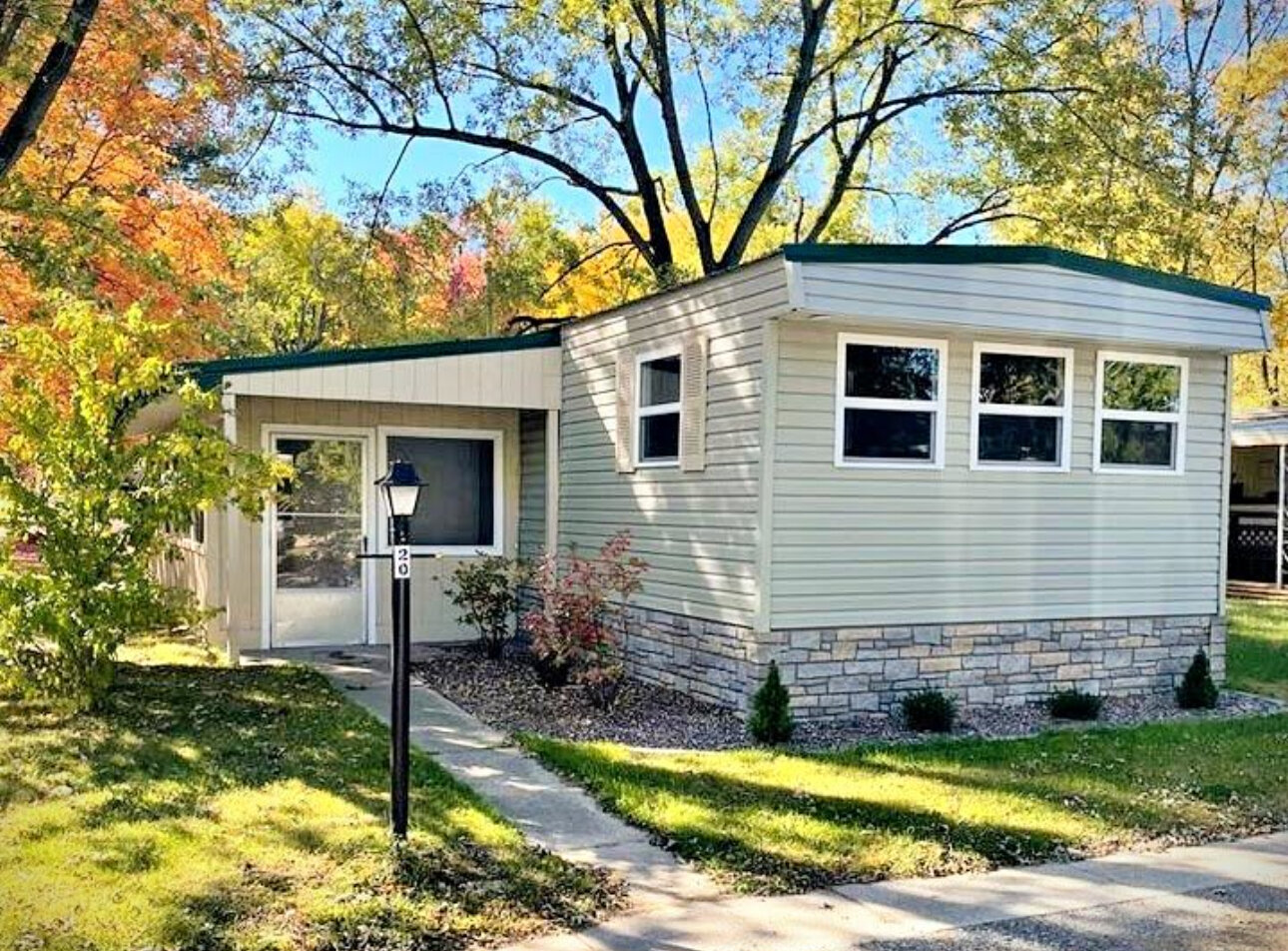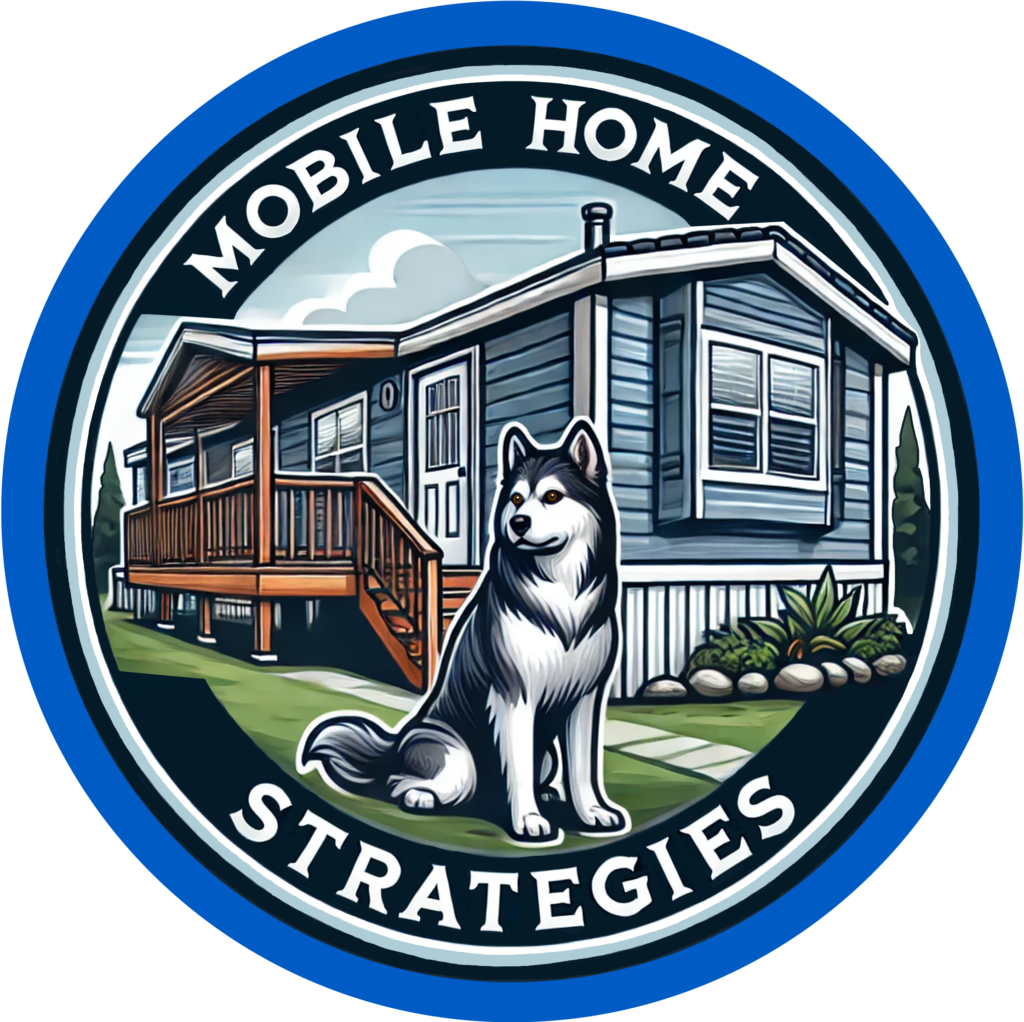Selling an inherited property isn’t the same as selling your personal residence. You may need to go through probate, clear debts, and work with family members before you can list or sell the property.
Inheriting a property can be tough emotionally as well as on your bank account. Does the property need expensive upgrades and repairs? How much will you have to pay in taxes? Is there a will or will you need to deal with the probate process? But inherited properties are also a great opportunity for real estate investors and buyers looking for a discount on a property they can make their own. But what does it take for a homeowner to sell an inheritance? Are there special steps that need to be taken to deal with this type of sale? This article will explain the process of selling an inherited property to (hopefully) make a profit.
Here’s what you need to know to navigate the process of selling your inherited home smoothly.
How To Sell An Inherited Property
So you’ve inherited a property and you’re not sure what happens next. In most states, the inherited property must go through a probate process so the courts can determine who is the legal owner. Probate is a legal process in which the Court legally transfers ownership of the estate’s assets to one or more beneficiaries and/or Heirs. Depending on the state of the will (if there was one), this process can be very fast or very slow.

Determine the Executor
For inherited properties with a will, establishing the executor of the estate should be straightforward. One of the most important aspects of a will is establishing an executor that is able to carry out the deceased’s wishes through the process of probate. Any assets listed in a will can’t be sold until the will is validated by the Court but, once approved, the executor of the will is allowed to act on the wishes of the deceased. But if the will is contested or there is no will, the process might take longer as the Court gets involved.
The probate court will appoint someone not associated with the family as an administrator to the estate. These administrators play a similar role as an executor; they are responsible for carrying out the wishes of the deceased as stated in the will, as well as paying off any of the estate’s debts and distributing any assets. They may also determine if any real estate assets will need to be sold to pay off the estate’s debts, including back taxes, mortgages, etc.

Working with Lawyers and Real Estate Agents
Probate is not a simple process which is why you’ll want an experienced lawyer to help you navigate the potential pitfalls of selling an inherited home. But once you have the probate court’s okay to move forward with the sale of the property, working with a real estate agent that has dealt with inherited homes before will be your next smart step. An experienced agent with probate experience will understand the nuances and regulations for this type of sale. They can help you find the right buyer to help you get top dollar for the inherited property. They also will be a helpful guide to let you know what is worth spending time and money to fix up and upgrade, and what is a waste of your time. Listening to their advice may be the difference between selling a property quickly and for a profit, or being stuck with a house that sits on the market for too long and sells for below market value.

Resolve Any Debts
When you hear the word “inheritance” do you think of a mysterious great-aunt leaving you a million-dollar mansion in the woods, or do you understand the reality of having to deal with a property that might have liens against the title, years of back taxes, as well as a mortgage that leaves you with the ability to make much of a profit after a sale? Sadly, dealing with a loved one’s passing often means dealing with their debt, whether that’s in the form of taxes, a mortgage, or maxed out credit cards. Any assets you inherit must go to paying off that debt first before you can see one dime of the estate. While a house may seem like a huge asset, it also can be a huge money pit. An experienced estate advisor can help you research your options when it comes to dealing with an estate.

Clean & Restore the Home
Once ownership has been decided and the property is considered yours, your next step will be to decide whether you want to live in it, rent it out, or sell it. Many times, when a loved one passes they leave behind a house that is not in the best of shape. Whether the property hasn’t been kept up in the past decade and needs major cleaning and repair, or there were never any upgrades done and the house will need to be completely renovated to make it “market ready”, this is the part of an inheritance that is often forgotten about.
What Happens to the Mortgage When You Inherit a Home?
One of the most confusing parts of inheriting real estate is understanding what happens to the mortgage. Many heirs assume the debt disappears—but that’s not the case.
When you inherit a property with a mortgage, you typically have a few options:
- Assume the mortgage (if the loan terms and servicer allow it)
- Continue making payments on the deceased’s behalf
- Refinance the loan into your name
- Sell the property and use the proceeds to pay off the loan
It’s important to contact the mortgage servicer right away to notify them of the inheritance and request a payoff amount. Some lenders may allow a short grace period, but interest and late fees can add up quickly.
If you’re not in a position to take over payments, selling the home is often the cleanest and fastest path forward. A direct sale to Mobile Home Strategies ensures the mortgage gets paid off at closing—and you walk away with whatever equity is left, without worrying about foreclosure.
When the Inherited Property Has Code Violations or Structural Issues
Inherited homes aren’t always in the best shape. Sometimes the house has been vacant for years, has outdated wiring, or suffers from major issues like a leaky roof, foundation cracks, or even active code violations.
These types of problems can make it difficult to list the home traditionally, especially if a buyer is using financing. Lenders often require costly repairs before approving a loan—and that’s money you may not have or want to spend.
Here are your options:
- Fix it up yourself if you have the time, funds, and energy to manage contractors.
- List it “as-is” with full disclosure, though this can take months and limit your buyer pool.
- Sell to a cash buyer who specializes in properties that need work.
At Mobile Home Strategies, we buy inherited homes in any condition—even those with code violations, unsafe structures, or major repair needs. You don’t need to lift a hammer or pay for permits. Just let us handle it and get cash fast.
Pro Tip: If you’re unsure about your legal standing in the estate, consult with an experience probate attorney.
Should You Sell, Rent, or Move Into the Inherited Property?
Once ownership is established, one of the biggest questions you’ll face is whether to:
- Sell the property outright
- Rent it out for monthly income
- Move into the home yourself
Each option has pros and cons. Renting provides passive income, but it comes with responsibilities like maintenance, tenant screening, and managing long-distance logistics if you’re not local. Moving in could help you save on housing costs, but it may trigger property tax reassessments or insurance changes. And selling could give you the cleanest break—especially if the property needs a lot of work or comes with family baggage.
Ask yourself:
- Does the home need major repairs?
- Is the neighborhood appreciating or declining?
- Do you want to be a landlord?
- Would selling reduce your financial or emotional burden?
For many heirs, selling is the easiest and most practical route—especially when the home is outdated or in probate. Mobile Home Strategies can help you explore your options with zero pressure.
Selling an Inherited Property With Tenants Still Living Inside
Inheriting a rental property might seem like a financial win—until you realize there are tenants living inside, and a lease agreement in place. As the new owner, you’re now legally responsible for honoring the terms of that lease, including rent collection, repairs, and even eviction procedures if necessary.
Before making any moves, check the following:
- Is there a written lease? You’ll need to review it before taking any action.
- Are the tenants paying rent on time? If not, your options may include formal eviction or offering cash for keys.
- Do you want to be a landlord? If not, you may need to wait until the lease ends or sell the property with tenants in place.
Some cash buyers—including Mobile Home Strategies—will buy inherited properties even with tenants still living there. If you’d rather avoid becoming a landlord or dealing with tenant disputes, a fast sale to an investor may be the best solution.

Contact Us Today For Your Cash Offer!
Meet Our Team
Robbie, Kristen, and Koda!

At Mobile Home Strategies, we’re a local, family-owned business that understands how emotional and overwhelming selling an inherited property can be. Whether you’re dealing with probate, cleaning out a loved one’s home, or coordinating with multiple heirs, our goal is to make the process easier, faster, and far less stressful.
We’re not here to pressure you—we’re here to listen. Our team specializes in buying inherited houses, condos, and mobile homes in any condition, no matter the situation. You don’t need to worry about repairs, showings, or even cleaning up. We’ll handle the hard parts so you can focus on what matters most.
✔ Fast, fair cash offers within 24–48 hours
✔ We’ll work on your timeline—close in days or when you’re ready
✔ No repairs, cleanouts, or agent commissions
✔ Compassionate support from a team that truly cares
✔ We buy inherited homes in probate, with or without a will
You don’t have to figure this all out alone. Whether you’re local or managing the sale from out of state, we’re here to help guide you every step of the way. Let’s work together to create a simple, stress-free path forward.
Need to sell your mobile home? Let’s find the best strategy for you—contact us today!

Do all heirs have to agree to sell the property?
No, the Heirs don’t have to agree to sell an inherited house or property if ownership has been established by a will or the probate court. But if ownership has not been established, such as with an estate with no will and/or a Court-appointed administrator, then all Heirs must agree to the sale. This also includes properties that have been put up at auction by the Court to pay off the estate’s debts. If a buyer purchases a house at auction but one or more of the Heirs disagree with the sale, the purchase must be put on hold while the disagreement is worked out and a settlement is reached.
How to Settle a Disagreement
There are a variety of options for settling disagreements among Heirs over an estate, but the first step is making sure that a loved one has an executor. Having a point person who is there to make sure the deceased’s wishes are followed as set forth in the will can ensure that there are no arguments over how the assets will be dealt with. If there is no executor and the will is being disputed, your next step may be hiring a mediator. Having a neutral third party to help work out differences will be much more affordable than a legal battle in probate court.
Best Practices
But what if the issue is around the executor themselves? Disputes can occur when a family member is named as the executor or trustee of a will, causing strife with the other family members. If this has happened to you, an option is for the person to decline the appointment and choose an independent fiduciary, such as an estate-planning attorney, to administer the will. Stepping back while a neutral party steps in might not just keep arguments from cropping up, but might also give everyone the time and space to deal with difficult emotions before it permanently damages your family.
Common Inherited Property Mistakes to Avoid
Selling an inherited property may seem straightforward, but these common mistakes can lead to delays or lost profits:
❌ Not checking for existing liens or unpaid taxes
❌ Waiting too long to file probate paperwork
❌ Making costly upgrades with no guarantee of ROI
❌ Failing to clear title before listing the property
❌ Not agreeing with siblings or co-heirs before the sale
Avoid these pitfalls by consulting with legal and real estate professionals early on—and considering a direct sale if time or money is tight.
How is inherited property taxed when sold?
State and local governments in the United States collected over $5.3 billion in revenue from estate and inheritance taxes in 2020. That’s a lot of taxes! But with laws and regulations different from state-to-state, you’ll want to do your research and contact a lawyer with knowledge and experience of taxes and estate planning as you deal with a surprise inheritance or you’re writing your own will.
State Tax Laws
Each state has different laws regarding inheritances. In the case of the sale of an inherited property, states may take an estate tax, an inheritance tax, as well as a capital gains tax on your inheritance. Currently, twelve states have an estate tax, 5 have an inheritance tax, and one has both an estate and inheritance tax.

Capital Gains Tax on Inherited Property
What is the capital gains tax and which states require it? The capital gains tax is paid on the appreciation of any assets that an heir inherits through an estate but it is only levied once the asset is sold for a profit, not when you inherit. This tax is then paid on the difference between the sale price and the purchase price of the property. Most states require this tax paid on an inherited property, but there may be exemptions for individuals selling a property for less than a certain amount. An example is Washington State, where the capital gains tax is not levied on homes and/or properties sold for less than $250,000. There may also be other legal ways to get around or reduce the capital gains tax in your state, including reinvesting the money in another property. Consult with a tax lawyer knowledgeable of the laws in the area you will be selling before proceeding with the sale of your property.

Estate Taxes
An estate tax is a tax paid directly out of the estate to the state before anyone is able to inherit it. Worried that you might get a huge hit taken from the estate? Don’t worry! The estate tax has a minimum threshold which in 2023 was $12.92 million for individuals. This means that the government is not able to charge you an estate tax unless your total taxable estate is worth $12,920,001. The remainder is passed on estate tax-free. Despite having such a high threshold, each year more states repeal their estate tax laws, losing out on millions of dollars of revenue.

Inheritance Taxes
Only six states have an inheritance tax, meaning that it is likely that you are in the lucky majority that won’t have to deal with this. But if you live in one of those six states – Maryland, Nebraska, Kentucky, New Jersey, Pennsylvania, and Iowa – you as a beneficiary/Heir to an estate will be required to pay taxes on your inherited assets and properties. But don’t worry – even if you live in a state that has an inheritance tax, you won’t have to pay a dime if the deceased lived in one of the 44 states that does not have this tax.
Can You Sell an Inherited Home With a Reverse Mortgage?
Yes, you can sell an inherited property with a reverse mortgage, but there are important rules to know. A reverse mortgage must be repaid in full when the homeowner passes away. That usually means selling the home and using the proceeds to pay off the balance.
If the home sells for more than what’s owed on the reverse mortgage, heirs keep the difference. If the home sells for less than the loan balance, most reverse mortgage lenders (especially FHA-insured ones) won’t require heirs to make up the difference.
The key is acting quickly. Lenders often expect heirs to settle the reverse mortgage within 6–12 months after the original borrower’s death. If you wait too long, the lender may initiate foreclosure proceedings.
At Mobile Home Strategies, we understand these timelines and can move fast to help you avoid losing the property altogether.
How to Prepare an Inherited Home for a Smooth Sale
Even if you’re planning to sell the property as-is, there are a few simple steps that can make the process faster, easier, and potentially more profitable.
- Secure the property. If the home has been vacant, make sure it’s locked, and utilities are off or maintained. Consider changing locks or installing a temporary security system if needed.
- Notify service providers. Cancel any ongoing subscriptions, lawn services, internet, or utilities not in use. Forward the deceased’s mail to the executor or estate attorney so nothing important gets missed.
- Organize important paperwork. This includes mortgage documents, insurance policies, tax records, utility bills, and anything that relates to the ownership or condition of the home.
- Assess the property’s condition. You don’t need to hire an inspector unless you’re doing a traditional sale, but it’s good to have a general understanding of repairs needed so you can speak with confidence to potential buyers or investors.
- Clear out personal belongings if possible. A clean slate helps buyers visualize the home’s potential—and helps you move on emotionally.
At Mobile Home Strategies, we can walk you through exactly what’s needed (and what’s not) to sell your inherited property fast. Whether the home is spotless or still full of old furniture and boxes, we’ll make a fair cash offer and close on your timeline.
Documents required to sell an inherited property
To show legal ownership and place a property for sale, you will need to have a copy of the documents issued by the court that grant you the legal authority to act as the executor or administrator of the estate. These documents will establish your ability to manage the inherited property. Once a buyer is found and you are ready to close, you’ll need the deed, title insurance, or other relevant legal records to establish the legal ownership of the inherited property.
Can You Sell a Property Before Probate Is Complete?
This is one of the most frequently asked questions—and the answer depends on the legal structure of the estate and local laws. In most cases, you cannot sell a property until probate is complete or unless you’re granted special permission by the court.
However, some states offer expedited processes or allow the executor to sell the home as long as the proceeds go back into the estate. If you’re unsure whether you’re allowed to list the home, talk to a probate attorney or reach out to Mobile Home Strategies—we’re happy to walk you through your options.
Do your research regarding what additional documents may be needed to sell an inherited property! Some jurisdictions may require additional property-related documents, including previous surveys, inspections, or any other relevant paperwork that pertains to the property’s condition or history.
How Long Does It Take to Sell an Inherited Property?
The timeline for selling an inherited home can vary greatly depending on a few key factors—whether probate is required, if the home needs repairs, and how cooperative the heirs are.
If the estate is clear of legal issues and the home is in good condition, it might only take 30–60 days to sell. However, when probate is involved, the process may take 6 months to a year or more. The timeline also depends on how quickly heirs can make decisions, especially if multiple family members are involved.
Working with a direct cash buyer can dramatically reduce this timeline. At Mobile Home Strategies, we’ve helped sellers close in as little as 7–10 days—even when the home is in poor condition or has outstanding issues.
What Happens If the Inherited Property Is Out of State?
Inheriting property in another state can add several layers of complexity. Different state laws, probate rules, and tax requirements can slow down the process and make selling more stressful. If you’re the executor and live out of state, you’ll likely need to work with a local attorney, a probate court, and possibly even a licensed real estate agent with experience in cross-state transactions.
You may also need to travel to handle inspections, cleanouts, or legal filings. Alternatively, you can hire a local estate representative or use a cash buyer like Mobile Home Strategies who can help coordinate these tasks on your behalf.
What Happens If the Inherited Property Is Out of State?
Inheriting property in another state can add several layers of complexity. Different state laws, probate rules, and tax requirements can slow down the process and make selling more stressful. If you’re the executor and live out of state, you’ll likely need to work with a local attorney, a probate court, and possibly even a licensed real estate agent with experience in cross-state transactions.
You may also need to travel to handle inspections, cleanouts, or legal filings. Alternatively, you can hire a local estate representative or use a cash buyer like Mobile Home Strategies who can help coordinate these tasks on your behalf.
Pro Tip: If the out-of-state property is in poor condition or hard to manage remotely, consider selling it as-is for cash. This saves time, avoids travel costs, and eliminates the hassle of long-distance repairs or showings. If the out-of-state property is in poor condition or hard to manage remotely, consider selling it as-is for cash. This saves time, avoids travel costs, and eliminates the hassle of long-distance repairs or showings.
Is there an easier way to sell?
Yes, there is! Mobile Home Strategies is a direct house buying company that has built our reputation on buying inherited houses for cash with less stress and less fees. Contact us today and get a competitive cash offer for an inherited house, condo, or property. We buy homes in any condition, and we can also help with the convoluted process of selling a house in probate! Let us make your home selling experience as straightforward and stress-free as possible so you can move on with your life.
Even if the house suffered major damage in the last storm or was neglected for years and needs a large amount of upgrades to make it “market ready”, once you accept our fair cash offer our team of experts will handle all of those expensive repairs so you don’t have to! We make selling an inherited house easy.
What If You Inherit a Mobile Home?
Inherited mobile homes come with their own set of legal and logistical hurdles. If the home is on leased land (like in a mobile home park), the land lease must be addressed separately from the home itself. Some parks won’t allow new owners unless they meet strict credit or background checks, or they may require repairs before a title can transfer.
To sell a mobile or manufactured home, make sure:
- The title is in your name (you may need to retitle the home after probate)
- All back lot rent or utilities are resolved
- The home is up to park standards or sold as-is to a cash buyer
If you’re dealing with probate, liens, or a home in disrepair, Mobile Home Strategies specializes in buying inherited mobile homes in any condition—even if it needs work or hasn’t been lived in for years.
Emotional Considerations When Selling a Loved One’s Home
Selling a property tied to a loved one’s memory can be emotional. Heirs often find themselves sorting through decades of belongings, family heirlooms, and sentimental clutter. It’s important to give yourself grace through this process.
You may want to:
- Set aside a few meaningful items to keep before cleaning the house
- Take photos of favorite spaces or family mementos
- Involve family members in the cleanout to create closure and shared memories
Sometimes, the grief associated with losing a parent or close relative makes it difficult to make decisions. If that’s the case, don’t rush. Give yourself time—but also consider whether holding onto the property is delaying your healing.
Remember: Letting go of a home doesn’t mean letting go of your loved one. Selling can provide closure and financial peace of mind.
How to Handle Personal Belongings in an Inherited Property
Dealing with personal belongings is one of the hardest parts of inheriting a home—especially if it’s filled with a lifetime of memories. Sorting through furniture, photos, and keepsakes can be emotionally overwhelming.
If you and your family are struggling with this process, consider these tips:
- Start with the essentials: Look for legal documents, valuables, or items with high sentimental value.
- Create keep, donate, and discard piles: This helps break the process into manageable steps.
- Consider professional cleanout services: Especially for homes with years of accumulation or if there are hoarding concerns.
- Don’t rush: Take time to say goodbye if needed, especially if this was a family home.
If you decide to sell as-is, Mobile Home Strategies can take care of the cleanout for you. We’ve worked with families going through loss, and we’ll handle the process with compassion and care.
What Happens If There Are Multiple Inherited Properties?
If your family inherited multiple properties from the estate, each one must be handled individually in terms of title transfer, debt resolution, and tax implications. It can be helpful to work with a probate attorney or estate planner to create a timeline and strategy.
In many cases, families choose to:
- Keep one property for personal use (e.g., a vacation home)
- Sell others to cover expenses or divide inheritance equally
- Use proceeds from one sale to repair or rent another
This is another scenario where selling for cash makes sense. Rather than splitting time, money, and energy among multiple homes, you can sell quickly and divide the proceeds—without worrying about showings, repairs, or coordinating schedules among heirs.

Contact Us Today For Your Cash Offer!
If you own a property that’s stuck in probate that you are ready to sell, call us at (617) 615-6490 day or night to get a competitive cash offer for that inherited home. We buy properties in any condition and no matter what the estate’s financial situation might be.

